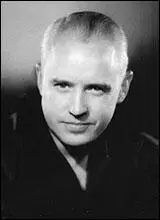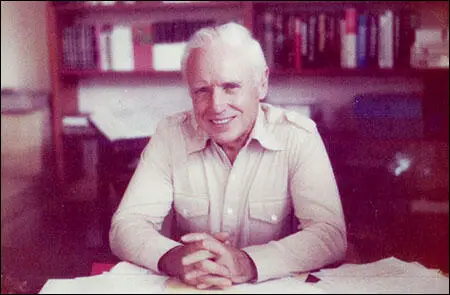William Bradford Huie

William Bradford Huie was born in Hartselle, Alabama, on 13th November 1910. Educated at the University of Alabama, first novel, Mud on the Stars (1942) dealt with the Depression in the Deep South. He followed this with the best-selling The Revolt of Mamie Stover (1951).
Huie became involved in the campaign for black civil rights and wrote about the activities of Asa Earl Carter and the Ku Klux Klan for national magazines such as Time. This included cases such as the castration of Edward Aaron and the lynching of Emmett Till.
Articles about the murders of James Chaney, Andrew Goodman, and Michael Schwerner, were later published as a book, Three Lives For Mississippi (1964).
Other books by Huie included The Execution of Private Slovik (1954), The Klansman (1967) and He Slew the Dreamer (1970), an investigation into the assassination of Martin Luther King. Bradford published 21 books and they have sold over 28 million copies.
William Bradford Huie died on 20th November 1986.

Primary Sources
(1) On 2nd September, 1957, Bart Floyd and five other members of the Ku Klux Klan, castrated Edward Aaron, a 34 year old African American from Barbour County, Alabama. William Bradford Huie's exposure of this Ku Klux Klan initiation ceremony first appeared in Time Magazine. He later wrote about the case in Three Lives For Mississippi (1964)
Two of the Klansman, Miller and Griffin, confessed, became state's witnesses, testified against the other four, and were given suspended sentences. Mabry, Floyd, Pritchett, and McCullough pleaded not guilty because, as members of the Klan and the Citizens Council, they did not believe an all-white, all-male jury would convict them.
Mabry, Floyd, Pritchett, and McCullough were tried separately, and the state's case was the same against each of them. After Aaron told his story, the women left the courtroom and Aaron partially undressed and stood before the jury. Miller and Griffin then testified, along with the doctors and the police. None of the defendants denied the atrocity; they only presented "character witnesses", including preachers. The verdicts were prompt in each case: guilty and twenty years.
In January 1963, however, with Klan support a hate-filled little man named George Wallace became governor of Alabama. The head of the Klans in Alabama and Mississippi, Robert Shelton, boasted that the Klan had supplied Wallace's "margin of victory". It was then assumed throughout Alabama and Mississippi that as soon as Wallace made his first appointment to the parole board, the four Klansman would be paroled.
Wallace's first appointee to the parole board took office on July 11, 1963. Two weeks later, on July 25, 1963, the board reversed its 1960 position and voted unanimously not to require the four Klansman to serve one third of their sentences before parole.
(2) William Bradford Huie, Three Lives For Mississippi (1964)
The Klansman are numerous in Alabama and Mississippi. There is no real central leader, though Robert Shelton, of Tuscaloosa, Alabama, who is in contact with the Mississippi Klans, is prominent.
Paul Johnson was elected governor of Mississippi with Klan support, and while campaigning he delighted Klansman by repeating in almost every speech that NAACP - the National Association for the Advancement of Colored People - means N*******, Apes, Alligators, Coons and Possums.
(3) William Bradford Huie, Three Lives For Mississippi (1964)
In 1964 the people of Mississippi were about like Americans everywhere, but with one difference. Reformers, many of them from outside the state, were working to improve the opportunities of Negroes in Mississippi - to help them qualify to vote and to obtain better jobs and educations. Here is the difference. Many of the "good people" in Mississippi had decided to allow terrorists to "handle" Mickey Schwerner. Moreover, in some of the rural counties, sheriffs had been elected on their claim that they knew how to "keep N****** in their place" and how to handle "invaders". In turn they had promptly chosen as their deputies men with the same ideas.

